
by cristina | Nov 23, 2021 | Featured
by Maria Raimundo* | originally published in Observador
The transformation of digital health has highlighted the need for the entire industry and medical practice entities to operate and keep patients at the center. Patient centralization has influenced national guidelines and policies in several countries and organizations, including the US, UK, EU, and the World Health Organization (WHO). The concept of patient-centered care adopts a conscious perspective of the patient. As an example, the importance of the patient’s interactions with service providers and institutions. When the patient interacts with the healthcare system, he/she interacts with various stakeholders throughout the process. However, healthcare has taken unexpected directions, including placing patient-centeredness in larger circumstances that are transforming 21st-century medicine.

The healthcare system is part of an ecosystem, a larger concept where several patient-centered entities act. Players, such as Big Tech companies or innovators of Digital Health solutions, were not previously included in the traditional healthcare system. Besides patients interacting with the healthcare system, system stakeholders also interact with each other to maintain well-being and patient-centered care. This new collaborative health paradigm is building a new multipolar ecosystem. It includes hospitals and other primary care centers, medical industry companies, universities, patient associations, startups and SMEs, foundations and NGOs, among other governmental and regional institutions. Here, collaboration is joining capacities, interests, and knowledge between all these entities present in the ecosystem, to create innovative initiatives for change, and go far beyond the doctor-patient relationship.
Within this new ecosystem, everyone shares information, engagement, and responsibility. Consequently, both knowledge and technology are converging and crossing boundaries between entities. Therefore, there is a need for all stakeholders to join together and form consortia to explore possible synergies. The goal is to 1) cooperate in delivering services, professional training plans, innovation, and research; and 2) reflect on how health is organized and oriented towards innovation. These goals are not only common to the healthcare system, but also to the digital health strategy to be adopted. Entities need to discuss and define healthcare innovation requirements, interest in participating in pilot projects and help with its implementation efforts. Collaboration is key for entities to implement innovative, sustainable and effective initiatives beyond pilot projects. Only then will healthcare transformation needs be met, of today and for the future. It is, therefore, necessary to consider the value that each entity brings, propose improvements according to each one’s needs, and ultimately face the solution as an ecosystem.
We need a digital healthcare transformation that respects the entities involved, that is bold enough to collaboratively assess what is needed, what didn’t work, what is an exaggeration, and what brings value. Where entities align the change needed to improve the quality, availability, and value of care. What needs to stop? What is worth replacing or needs to happen in the vast landscape of digital healthcare evolution? Hospitals or government institutions are just two parts of this ecosystem. The key to the success of a sustainable future healthcare transformation is also in the remaining stakeholders. Where can companies, associations, startups and SMEs, foundations, among others, provide value, suggest improvements and contribute to the development and implementation of new solutions?! The solution is collaborative!
* Maria Raimundo, 31 years old, is a Biomedical Engineer with a master’s degree in Entrepreneurship and Innovation Management within Life Sciences. She currently works at Beta-i, a collaborative innovation consultancy, as Senior Account Manager, promoting Digital Health innovation throughout the healthcare ecosystem. While attending the PhD program at MIT Portugal, Maria focused on the challenges of using and sharing genetic data. Her interests in eHealth, personalized medicine, genetics, nutrition and innovation led her to the United Nations, MIT, as well as professional experience in startups.
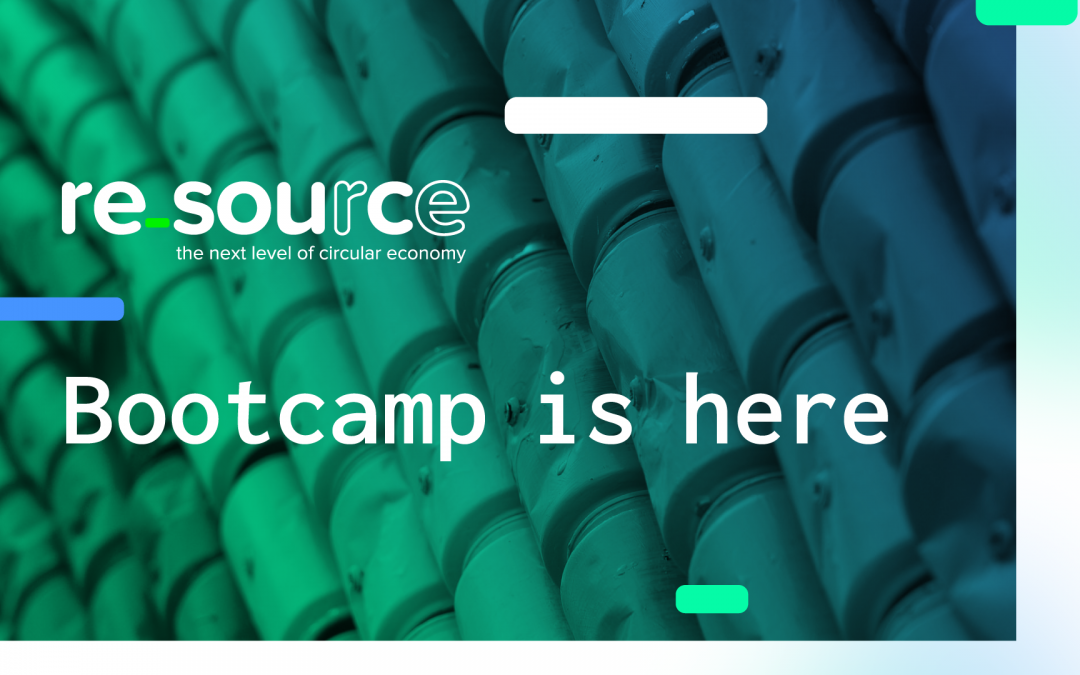
by cristina | Jul 1, 2021 | Featured
The digital open innovation program by Sociedade Ponto Verde to innovate packaging waste has already kicked-off. Re_source’s bootcamp is happening on June 28, 29 and 30 and on July 7, 8 and 9.
This journey of innovation will be fully digital, where the selected startups and innovators will meet the brave pilot partners of this special program.
The bootcamp includes sessions especially designed for partners and startups, pitches, preparation of one-on-one meetings, as well as deep dive conversations between both parties to define scope and purpose of their collaborations.
The participating startups will be split by challenge, so that each program’s category is covered with innovative solutions. In the end, both startups and pilot partners will have found their “match” and define further steps to their solutions for packaging waste.
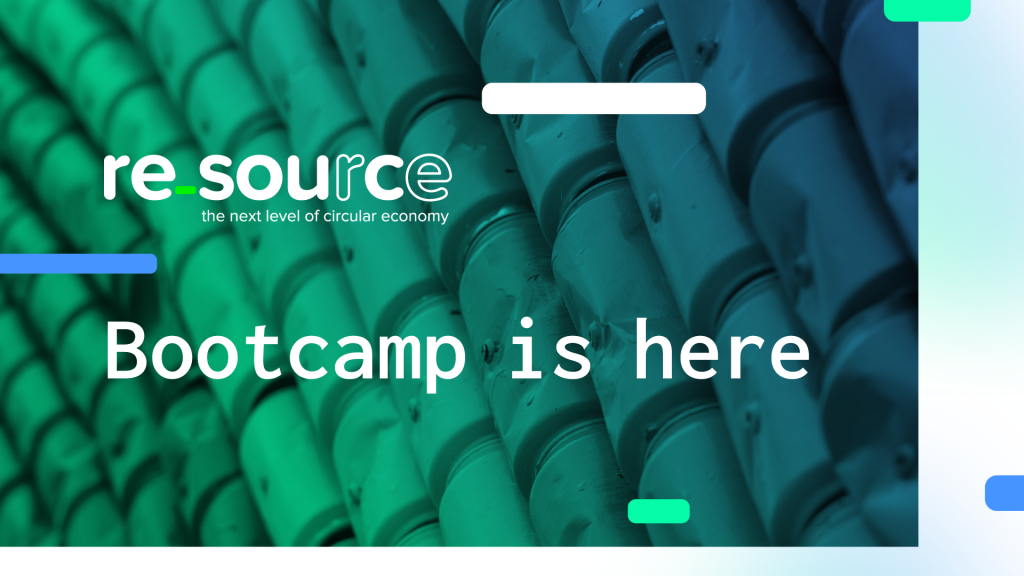
Among so many well qualified applications, it was not easy to decide who should move to this phase of the program, but re_source has selected 19 top startups to participate in the bootcamp:
Arqlite is developing highly efficient materials for massive industries, made 100% from discarded plastics.
An AI-based smart waste bin, designed for public places, enabling them to achieve efficiency in waste management and reach green strategy goals.
Technology for hotels, restaurants, and apartment buildings to ensure recyclables are sorted by customers before disposal, and the internal collection process of recyclables is streamlined.
Digitization, cloud data and blockchain technology to store and facilitate seamless sharing of information about plastic waste and map waste flows.
Delamination technology, used to recycle complex/multilayer plastic packaging by separating each of the materials that comprise the packaging and recovering all of them.
GreenPlat is a SaaS in blockchain that covers the whole production, managing environmental indicators and the supply chain and destination of companies.
Magnetic ink-based technology for recyclable packaging. he inks allow recyclers to magnetically (and economically) sort packaging elements during recycling.
Mudatuga believes in the power of education and community, spreading the compost awareness with a sense of humor and proximity to the public.
A social network that empowers forward-thinking organizations to communicate, promote and engage their communities to take collective steps around ESG-based initiatives.
Waste-based sustainable blocks for wood pallets and packaging. These blocks are made 100% from upcycled resources dumped everyday on landfills.
A patent-pending Tag and Trace technology that allows packaging manufacturers and brands to assign unique individual codes to each unit of a product.
A smart bin able to automatically differentiate waste thanks to machine learning and image recognition techniques.
Reath ((track & trace + analytics and BI tools) enables businesses to adopt and grow scalable circular packaging systems fit for the 21st century.
The only solution able to identify unmistakably all types of packaging waste with one device.
Personalized white-labeled service of recycling information and rewards for retailers and brand owners.
Peer-to-peer marketplace where users can hitch a ride for things they need recycled or moved.
Trash4Goods is a gamification platform that rewards users for recycling.
The world’s first patent bio-based material made entirely of unsorted household waste.
A tech company that helps collect more trash to recycle with software of AI, APPS and traditional IT systems combined together with its developed HW(machine).
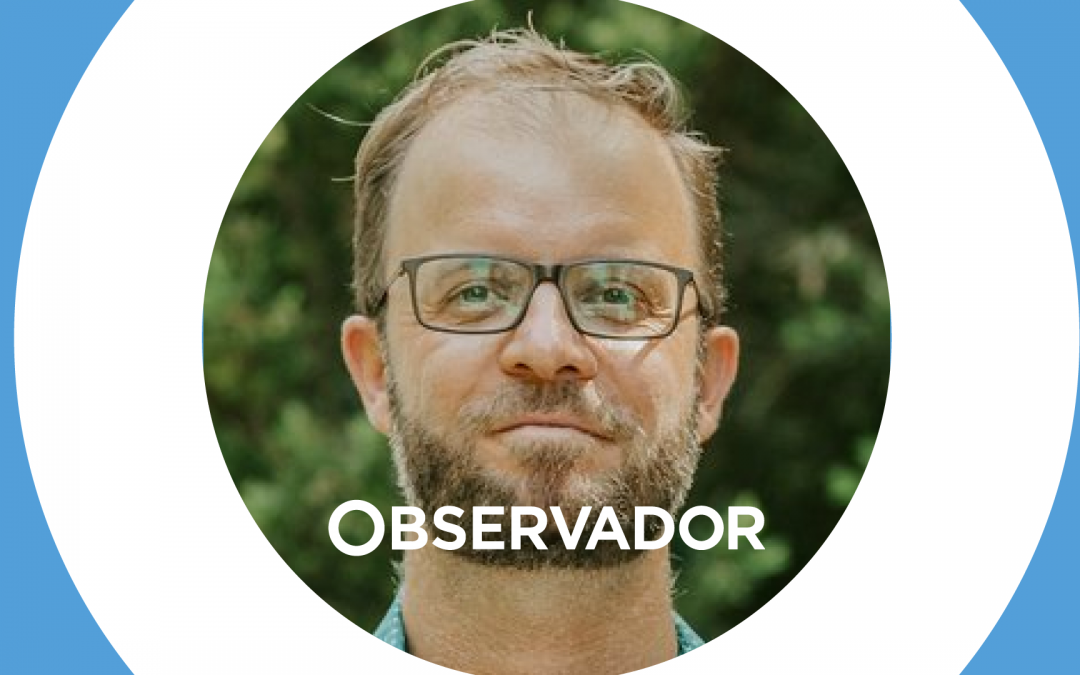
by cristina | May 25, 2021 | Featured
by Alisson Ávila* | Originally posted in Observador
We are all thinking, feeling, and talking about the pandemic and its impacts from different angles. Whether in the context of work relationships, family dynamics, (un)trust in institutions, or hope for the future, several studies point to an impact of a similar level to that of World War II, with the difference that this isn’t a “war” that ends at a specific time and, the next day, we move on to reconstruction works.
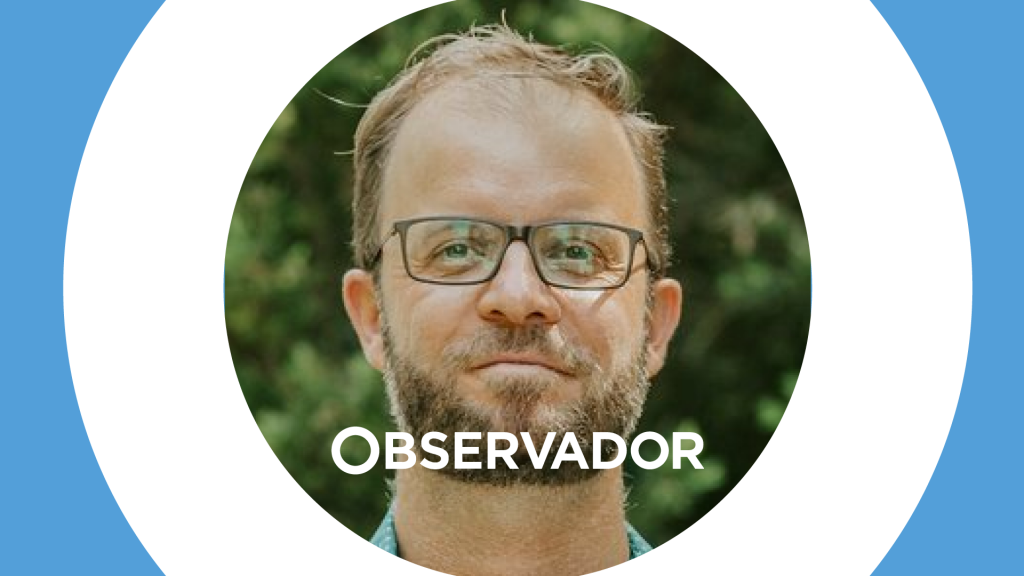
For example, the recently published 2021 Financing for Sustainable Development Report of the United Nations Inter-Agency Task Force on Financing for Development alerts us for a “lost decade” in terms of development, where the differences between rich and poor will further widen with strong socioeconomic consequences. On the other hand, Europe’s main stock exchanges are following their upward path, confident of a recovery following the gigantic investment of Horizon Europe – and above all, in the belief of economists that, after the massive vaccination, we’ll return to restaurants, shops and airports to consume and travel as if there was no tomorrow – and as if, in general, adult and economically active Europeans were more spenders than “savers.”
We’ll likely want to spend even more than what we have, to celebrate the return to the streets and thereby cause a mega-injection of capital into the economy. But should we do this in the post-pandemic time? Will it make sense to resume all our consumption habits, despite the unquestionable pleasure they provide, if we’re aware that the control of pollution, waste, and extraction of raw materials is also our responsibility? It is only through non-consumption attitudes that different industries will be forced to innovate and reinvent themselves and that several green and digital transition goals will be achieved in an effective and structuring way.
A year ago, when confinement started around the world, preliminary data collected by the European Space Agency (ESA) suggested that the reduction of mobility and fossil fuel consumption would have an almost immediate impact on air pollution in larger cities. However, just a few more months of Covid-19 were enough for new evidence to raise doubts about the permanence of this scenario – thus, indicating the obvious: decreasing systematic pollution levels involves much more than a hypothetically locked-at-home society. In 2020, three-quarters of the world’s countries registered the presence of microparticle levels in the air above the maximum recommendations, despite the significant drop in polluting activities, according to a report by Swiss company IQAir and Greenpeace. And in the United States, figures from the University of Delaware show that the average level of pollutants in the North American atmosphere has recovered in late 2020 and is increasing again – and will continue to grow when our mobility and the transport sector as a whole return to normal.
When it comes to our daily reality, the masks we find on the street, watercourses and beaches, or their disposal in inappropriate boxes are just “small examples” that still call our attention, as they are new to the eye. Meanwhile, all the other residues from our consumption track record are definitely becoming a sort of “landscape”, or are simply invisible. When we see the unquestionable growth of robust transportation packaging usage due to the e-commerce explosion during the pandemic, or the microplastics rain detected in the skies of California, it seems that the only sense still capable of reacting to our “old normal” is the sense of smell. Attributing nauseating odours to the rich material still not managed to recycle could be a good idea, by nudging our reaction towards a circular economy.
Anyway, our responsibility is key: it is the sum of our improved personal behaviours, alongside less, non-consumption decisions that will create a scale for change within society. By doing so, we might create the best available pressure to encourage more economic agents to move beyond environmental awareness and discourse to enter the action phase: the real innovation moment. Fortunately, tangible sustainability practices beyond any greenwashing empty discourse are growing on a dizzying scale in Portugal. Companies, startups, research centres, and public authorities are working together to innovate in a collaborative way – the only approach capable of generating any systemic impact. Examples are innovation programs such as NextLap, led by the Portuguese company Valorpneu alongside the largest tire recycler in the world, the Danish company Genan, which is developing pilots alongside startups and players in the industry to give new life to tires: according to data from the WBCSD (World Business Council for Sustainable Development) from December 2019, more than 30 million tonnes of end-of-life tires are discarded worldwide each year, generating a polluting and toxic liability for which Europe is responsible for around 10% of this total. In its turn, the pilot projects developed under the Bluetech program, led by the Portuguese Ministry of the Sea with the Luso-American Development Foundation (FLAD), envision tens of thousands of tons of carbon dioxide reducing in the country’s main ports, as pointed out in its impact report.
And the examples keep coming. The Smart Open Lisboa platform, from Lisbon’s City Council, is currently selecting startups from around the world to develop joint projects alongside large companies from the private sector related to their vertical for the Green Economy. And Sociedade Ponto Verde, the Portuguese organization that collects, recovers, and recycles non-reusable packaging waste from the past 25 years, recently launched the Re_Source program, based on a global call for solutions to increase the circularity of glass, aluminium, and plastic packaging. The program has also the goal of raising awareness for a change in what should be the simplest of our attitudes: correct separation and disposal of waste.
Although we are all looking forward to celebrating life and socializing on the streets and in other geographies (very rightfully so, by the way) it’s the near future that will mark the moment of truth in our commitment to sustainability. Are we really going to confront our past behaviours with the next choices we must undertake henceforth? Such shift is the definitive push for a redesign of production processes, value chains, and distribution in the economic system. Call it social pressure, consumer trends, or consumer insight: as long as it’s felt in the PNL results from those who haven’t changed yet, we’ll increase the chance of getting an adequate response for the sake of our descendants.
Not to mention, obviously, our planet itself and its natural order: this is all about less ego and more eco. So wave goodbye to anthropocentrism and say hello to biocentrism – the belief, and the pieces of scientific evidence, that all forms of life are important and inter-connected within a network where we are not the only and very special ones.
It will demand hard work indeed, but it will also give us a future – no greenwashing narrative involved. And it might sound like, but no naivety, too: it was good to keep up with the Leaders Summit for Climate valuable and necessary commitments these days. But it was even greater to check the necessary provocation from her again, Greta Thunberg right before the event’s opening with an open call to action to cut the bullshit. Shouldn’t we focus on smart Degrowth?
Lisbon, May 2021
(article originally published in Portuguese at Observador online newspaper – April 2021)
* Alisson Avila, Co-Founder, Communication & Knowledge Principal, Beta-i
alisson.avila@beta-i.com

by cristina | May 25, 2021 | Featured
by Maria Raimundo* | originally published in Observador
Despite the pandemic having brought unprecedented challenges, healthcare systems that already prioritized data-centric strategies and patients were better prepared to respond to the outbreak. Soon, they managed to adapt patient care and emergency planning according to these changes and according to the identification of patients at greater risk of contracting Covid-19. Embracing advances in population risk stratification and risk monitoring allows us to be better equipped to prevent disease and promote health, elements that are fundamental to public health and the sustainability of national healthcare systems. Genetics allows us to better understand health correlations, disease risk, and patterns of population groups to assess public health in general. Thus, population genetics initiatives are needed to prevent new incidences of public health risk, stratify population risk, and proactively protect the population. All in all, genetics has the potential to revolutionize current healthcare systems!

Health data began to have economic value across the healthcare ecosystem, especially in the field of genetics and in the pharmaceutical industry, while being seen as a strategy with potential. Population genetics has become intriguing, with genetic data being mostly considered to help predict, diagnose and treat the health of individuals in a more personalized and tailored manner. Strategies guided by genetics can decrease the risk of disease incidence, improve the adoption of healthy behaviors, as well as trigger early detection of diseases and more targeted treatment options. The collection of genetic data and more general health data began as isolated initiatives, whether in hospital laboratories, companies, or others. At the moment, several countries are establishing population data collection initiatives for the future implementation of personalized medicine in daily clinical care.
In the last two decades, large-scale projects have been implemented across Europe, as is the case of the European ‘1+ Million Genomes’ initiative. A partnership of 24 European countries, which are aiming to sequence at least one million genomes to provide access to the resulting genetic database by 2022. This collection has the potential to improve disease prevention, allow more personalized treatments, and provide innovative and impactful research. In addition, European countries like Estonia and the United Kingdom are pioneers in the collection and management of large amounts of genetic data, to implement improved public health efforts with a focus on preventive health measures.
Such initiatives require appropriate technical infrastructure, clear legal and ethical implications, as well as education for both citizens and policymakers, to ensure acceptance and successful integration of personalized medicine into national healthcare systems. Population genetics provides an opportunity to develop more personalized and targeted drugs, therapies, and interventions. In addition, it can also open doors for better diagnostics, prevention awareness, and more efficient use of existing resources. From cancer to rare diseases, to neurological diseases, to new outbreaks and prevention, genetics can vastly improve citizens’ health. It has the potential to improve the efficiency, accessibility, sustainability, and resilience of healthcare systems.
Consequently, there is a need for an initiative to collect and aggregate genetic data at a national level in Portugal. Such an initiative would not only encourage innovative research but would also promote innovation in the pharmaceutical industry. Besides, it would be possible to adapt public health strategies according to the identified population risks and to adapt the education of future healthcare professionals. The progress of the Portuguese national healthcare system shows that it is possible to achieve such an initiative at a population level, especially with the efforts being made with the implementation of the Recovery and Resilience Plan for 2021-2026. We must use the current pandemic crisis to embrace healthcare transformation and position Portugal at the forefront of healthcare innovation at the European level. More crises will come and we will want to be better prepared, not only regarding the implementation of digital health solutions and innovative healthcare equipment but mainly in preventing the risk of the entire population.
Lisbon, April 2021
(article originally published in Portuguese at Observador online newspaper – April 2021)
* Maria Raimundo is Senior Account Manager – Healthcare & AgroFoods AT BETA-I
and part of the community Global Shapers Lisbon Hub
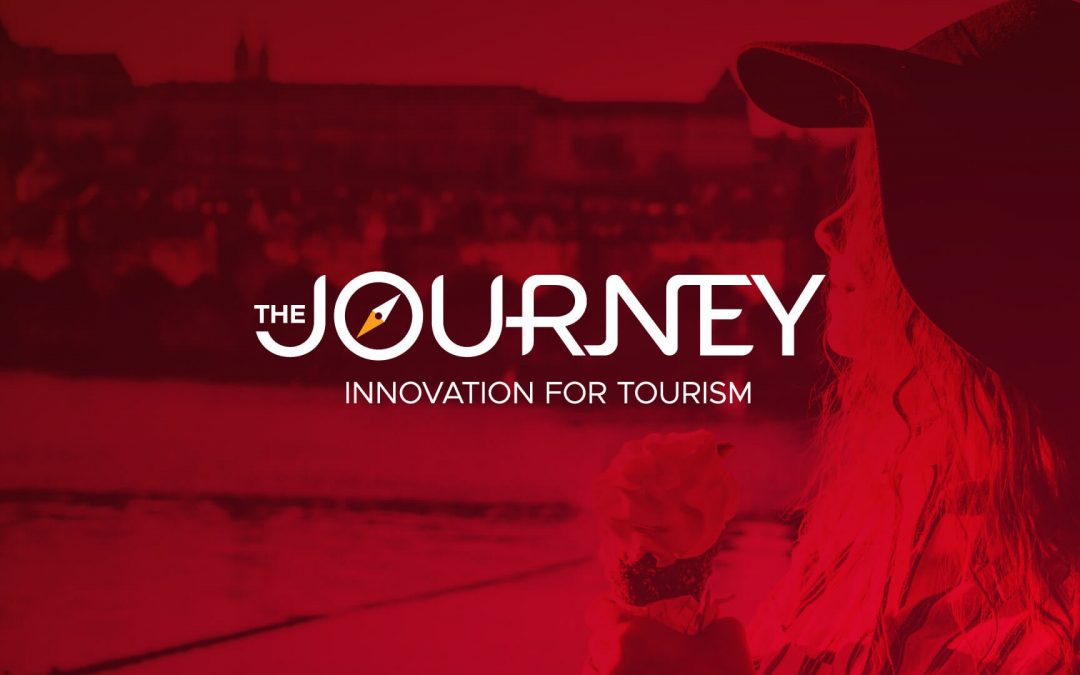
by cristina | Apr 30, 2021 | Corporates, Featured, Startups
Now in its fourth edition, The Journey returns to help disrupt the tourism industry, especially in demanding and urgent times like 2021.
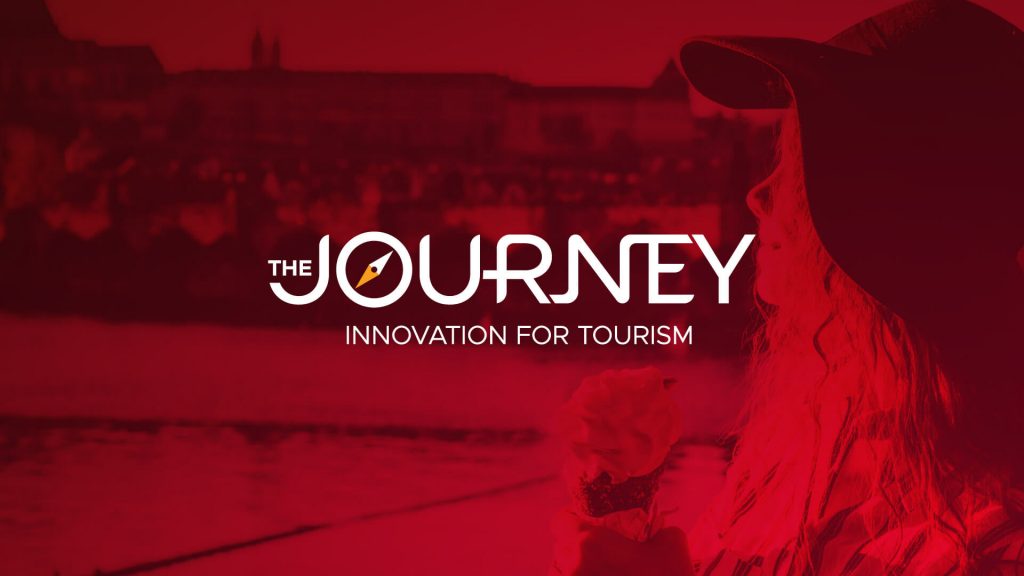
The Journey – innovation for tourism
As every sector, Tourism has always had to adapt to external variables. The year of 2020 in particular, due to the covid-19 pandemic, has proven that adapting to challenges is key for the success and sustainability of the whole sector.
Taking Portugal’s case, tourism represents the sector with the largest economic export activity in the country – accounting in 2019 for 52.3% of services exports and 19.7% of the total exports, and tourism revenues contributing 8.7% to the Portuguese GDP. This reveals its innovation and strategy to be even more crucial.
Following the lead, The Journey program rises once again to its fourth edition, to find the most innovative solutions for the sector, focusing on its recovery and revamping.
This edition is 100% online, yet gathering international startups and the program’s partners to collaborate together into developing pilot projects that will be all about rapid test and implementation. These Pilots should be solving challenges felt in Hospitality, Parks & Monuments, Tours & Activities and Payments. This means that startups from all industries can take part in this innovation journey, given that the most varied technology will be creating positive impact.
The good news is that the Top 14 startups were already chosen for the bootcamp, where they will explore and establish pilot projects between them and partners. Here are the mighty fourteen:
Manages guided visits content used on the visitor’s mobile device and allows the analysis of usage data.
Travel tech company that provides Hotels, Airlines, and OTAs a scalable, white-label product to plan unique and personalized travel itineraries.
The first Cloud-driven tour guide system in app format and an alternative solution to traditional radio group guiding devices.
Transforms the way the world gets together in real life in a post COVID world.
Smart settlement / automation system for the hospitality industry.
AI-powered platform that converts any screen in the public and business domain into a smart, real-time engagement and performance measurement asset.
Frictionless payment through QR codes with no apps, emails, signups or contacts involved.
The google analytics for the physical world. Enables brick & mortar chains to make decisions based on the movement, behavior and interests of millions of people.
Order-and-pay solution for the hospitality industry. Restaurants, Pubs, Hotels, Arenas, and Resorts are made more efficient, while their guests are kept safe and secure.
Using data to help cultural spots (museums, restaurants, stores, and local brands) to understand the purchasing behavior of Chinese audiences.
Multifunctional product able to recognize a huge number of documents and barcodes with minimal energy consumption and maximum security.
Interactive virtual tours that increase only visibility thanks to the partnership with Google.
Solution to help companies/departments/teams to manage shifts to better fit the customers flows.
Digitalize in-person transactions for verticals such as hospitality, health care, retail, access control and ticket vending solutions for attended and self-service transactions.
After agreeing on a fit and work plan, startups and partners will be collaborating together. We’re looking forward to sharing some of those collaboration results in the near future.
Keep up with The Journey!
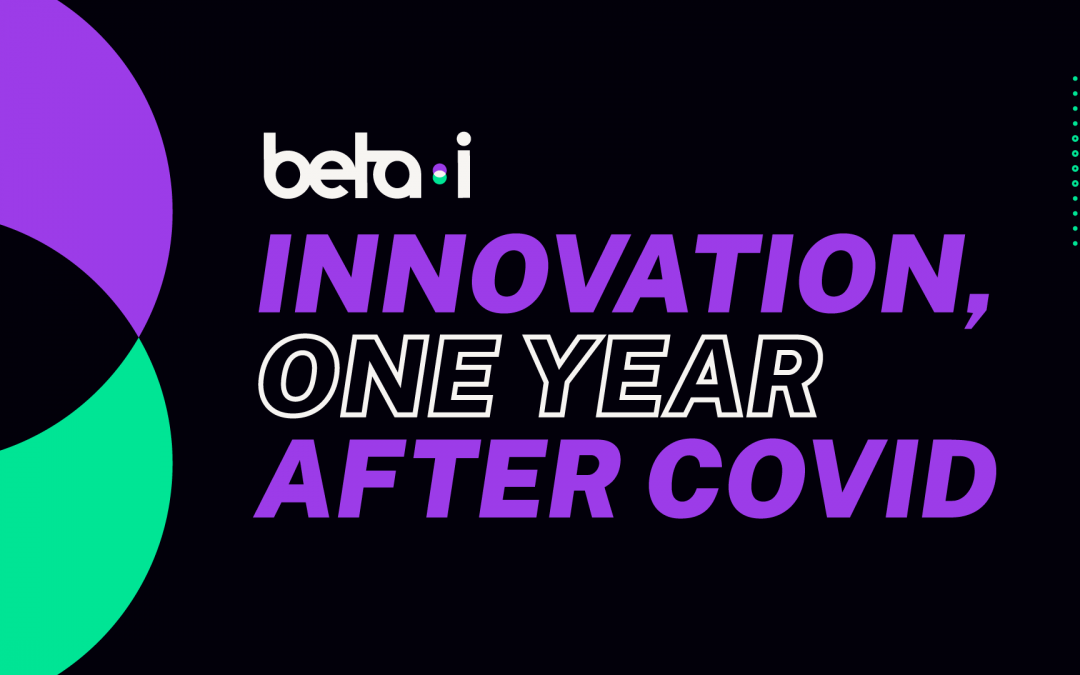
by cristina | Apr 19, 2021 | Corporates, Featured, Startups
Beta-i carried out an Ecosystem Survey to understand the evolution of the innovation market over the past 12 months among players in Portugal’s tech community.
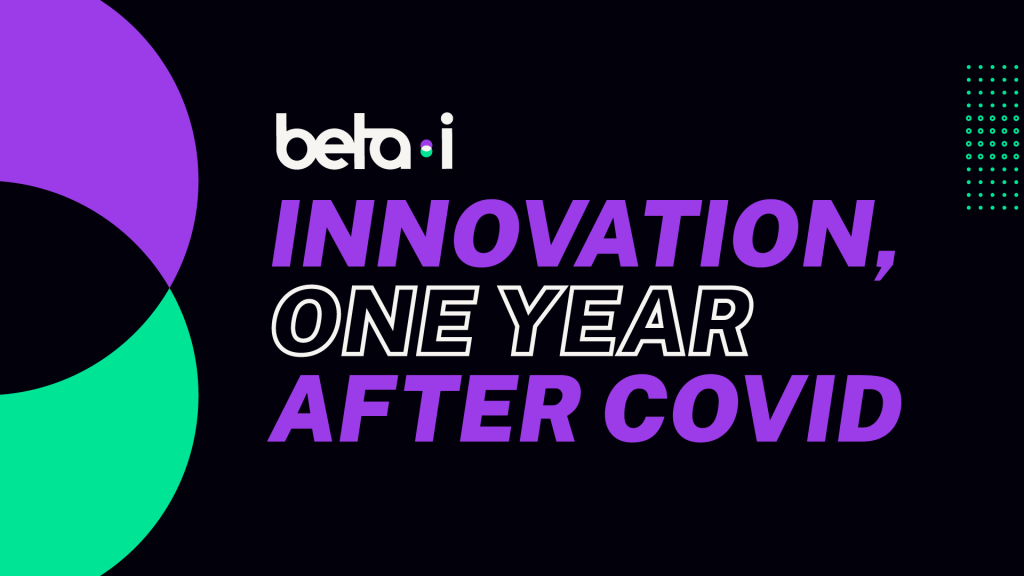
The survey’s results show a growth in innovation and digital transformation projects during the pandemic.
One year after the beginning of the pandemic, these were the main takeaways:
- 71% of respondents say that the number of innovation projects developed between startups, companies, universities, and research centres has increased between March 2020 and March 2021;
- 50% show an increase in their number of innovation partners to find new solutions to the pandemic’s challenges;
- 47% of respondents give greater preference to seeking local partners rather than entities outside of Portugal;
- Collaboration has also gained new strength, with over 70% of the community upholding the growth of this belief;
- Innovation and digital transformation as agents of change increased 47%;
- 52% of the respondents’ optimism about the future remains similar to the pre-pandemic period, being a more skeptical or pragmatic stance based on issues that go beyond the pandemic context – such as diversifying innovation funding models and reducing bureaucracy and public procurement rules;
- At Beta-i, we also saw our number of projects increase compared between March 2020 (15) and March 2021 (22 projects) and a 22% revenue growth in the first quarter of 2021 compared to 2020.
Alisson Avila, our co-founder and Communication and Knowledge Expert, explained that “the survey was conducted with people who work with innovation and digital transformation, during a year where this was paramount. A year later, this 12 month survey was undoubtedly crucial for the ecosystem to understand the way it deals with uncertain environments and, above all, rethink the way it approaches innovation.”
“However, we must understand the context of the data before assuming a positive correlation. The results show a solid upcoming scenario at a digital level; nevertheless, it may not represent higher revenue generation. It will be essential to align this through 2021, to confirm the trend that collaboration for innovation is a culture and process for generating results in the market,” adds Alisson.
The survey had the participation of 54 players from the technology community, including founders of startups, leaders, large companies’ executives, researchers, and investors, mostly of Portuguese nationality. The answers were collected between February and March, 2021.












